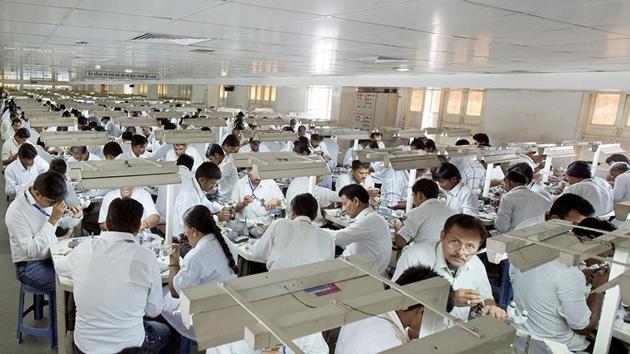Businesses hope for rise in demand with tax, PF relief
Sitharaman offered relief to the average consumer by cutting TDS for non-salaried employees by 25% of the existing rates. This, she said, will put Rs 50,000 crore in the hands of these people.
Consumer product companies are hoping that steps announced on Wednesday by finance minister Nirmala Sitharaman will generate demand by putting more money in the hands of consumers through cuts in the tax deducted at source (TDS) and contribution towards Employees’ Provident Fund (EPF).

Sitharaman offered relief to the average consumer by cutting TDS for non-salaried employees by 25% of the existing rates. This, she said, will put Rs 50,000 crore in the hands of these people.
The government also sought to put more cash in the hands of consumers by lowering their EPF contribution to boost take home pay. The government reduced the statutory EPF deductions for employers and employees to a total of 20% for the next three months. The move will thus reduce the employee cost for employers and give employees 2% more take home pay.
However, central public sector enterprises and state PSUs will continue to pay 12% of basic and HRA as employers share of EPF, though employees will put in only 10%.
It was encouraging to see the details of the stimulus announced by the finance minister, said Simon George, president at Cargill India, a fast moving consumer goods (FMCG) firm. “We can see a two-pronged initiative from the government, addressing both the demand and supply sides simultaneously to revive the economy. On the demand side, reduction in PF contribution and tax cuts for non-salaried professionals will put more cash in the hands of end consumers. This should trigger a demand surge,” George said.
The FMCG sector wants demand to revive as soon as possible, said Angshu Mallick, deputy chief executive officer, Adani Wilmar Ltd, a packaged foods company. “The announcements to lower TDS and TCS will boost liquidity and leave more money in the hands of people. This will spur spending, which is the need of the hour to revive demand and economic activity,” he said.
“The plan to provide funding to small businesses will help many of them tide over this crisis. This crisis presents a good opportunity to strengthen the rural economy, which could have been announced,” Mallick said.
On the supply side, George said support announced for MSMEs is a positive step as they are badly hurt by the demand disruption. “Allowing better access to credit and support of government benefits will help them restart production and supply goods in the market. We look forward to finer details on more incentives planned to provide an impetus to the industry,” he said.
The announcement by the finance minister was a booster shot to get consumption back on track, according to Anil Talreja, partner and leader, consumer business, Deloitte India. “The tranche of financial stimulus announced by the finance minister will lead to higher cash being left at the disposal of the consumer, be it reduction of TDS rates, PF contribution, or direct benefits to the MSME segment. Increase in liquidity in the hands of the consumer will go a long way in increasing consumption, leading to money being churned into the ecosystem. This will propel the engines of growth,” he said.
The government’s announcement comes at a time when India is witnessing high unemployment rates because of a prolonged lockdown. However, the unemployment rate fell by three percentage points to 23.97% in the week ended 10 May, Mint reported, as agricultural activity picked up and businesses restarted in parts of India.
However, because of the uncertainty around businesses and jobs, the Indian consumer is far from bullish. With uncertainty over their future finances, shoppers are expected to balance their spends on essential items, health, education, and on meeting their immediate financial obligations.
In a recent report assessing consumer demand in India, Boston Consulting Group said that 54% of those surveyed expect lower income in next six months. Uncertainty around future income was higher among the 18-25 age group, and significantly higher among small businesses.
BCG said 43% of those surveyed have an “unfavourable sentiment on future spends” with younger consumers, lower SECs, and small businesses being less resilient to effects of pandemic.
Sitharaman announced credit guaranteed loans MSMEs, which is expected to help about 4.5 million units to get back to business that she said was “to spur growth and to build a self-reliant India”.
Stay informed on Business News, TCS Q4 Results Live, Jio Financial Services Q4 Results Live along with Gold Rates Today, India News and other related updates on Hindustan Times Website and APPs



